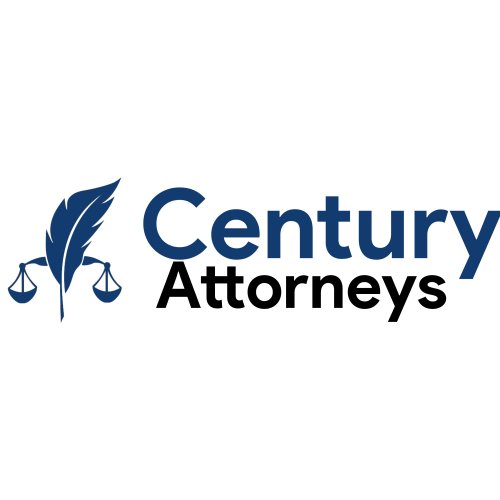Best Debt & Collection Lawyers in Kano
Share your needs with us, get contacted by law firms.
Free. Takes 2 min.
List of the best lawyers in Kano, Nigeria
Nigeria Debt & Collection Legal Questions answered by Lawyers
Browse our 2 legal questions about Debt & Collection in Nigeria and read the lawyer answers, or ask your own questions for free.
- How do we recover our debt
- Our neighbor in Kuje, market collected goods worth =4407500 on credit to pay as soon as he sold the goods(Highland tea). However, after selling the tea, he converted the proceeds to his other businesses. Since, February 2024, he paid only =N1300000, with =N3107500 outstanding. All efforts to get him paid... Read more →
-
Lawyer answer by Afe Babalola & Co. (Emmanuel Chambers)
This situation involves a breach of contract and possibly conversion (misuse of funds). Here's a step-by-step approach to resolve this issue legally:1. Have a lawyer send a Formal Demand Letter2. Initiate Legal Action (If No Response) . File a claim...
Read full answer - How can I deal with a person that is owing me cooperative money and is unwilling to pay.
- Payment of debt
-
Lawyer answer by Afe Babalola & Co. (Emmanuel Chambers)
Dealing with someone who owes cooperative money and is unwilling to pay can be challenging, but you can take the following steps to handle the situation constructively and legally:1. Open CommunicationReach Out Directly: Initiate a calm and respectful conversation with...
Read full answer
About Debt & Collection Law in Kano, Nigeria
Debt & Collection law in Kano, Nigeria, refers to the laws and guidelines that govern how creditors can recover debts from debtors. In Kano, as is the case throughout Nigeria, creditors are required to follow certain procedures to recover debts, including providing notice of the debt and seeking a court order if necessary. However, this area of law may vary due to the Sharia Law influence in Kano. It's important to understand these laws to protect personal rights or business interests.
Why You May Need a Lawyer
Hiring a lawyer for debt and collection issues can be crucial if you're being sued by a debt collector, facing a debt collection issue such as garnishment or repossession, or if you aim to recover a significant amount of debt. They can provide you with necessary legal advice, represent you in court, and negotiate on your behalf. They could also guide you if you've experienced harassment from collectors or believe that your rights under the Fair Practices for Debt Collection have been violated.
Local Laws Overview
The Debt Recovery (Special Provisions) Act is applicable all across Nigeria, including Kano, and it provides the basis for debt collection by permitting creditors to apply to the court for recovery certificates to recover their debts. Creditors must supply evidence of the debt and proof that the debtor has failed to discharge the debt when it was due.
However, as an Islamic state, Kano applies Sharia Law, and according to Islamic debt law, charging interest (Riba) is considered illegal, and contracts based on Riba are invalid. Islam promotes the idea of fair treatment and taking only what you have a right to, so coercive or harassing methods of debt collection are not permitted.
Frequently Asked Questions
What rights do I have as a debtor in Kano?
As a debtor, you have a right to fair treatment and are protected against harassment and undue pressure from creditors. In line with the principles of Sharia law applied in Kano, all parties in a debt contract must be treated with dignity and respect.
Can my properties be seized for debt recovery in Kano?
If a court order is obtained from a competent court, your properties may be seized or sold to recover a debt according to Nigerian laws. It is important to note that there are restrictions to this, and it is always best to consult a lawyer for advice.
Is interest allowed on debts in Kano?
No, In line with Sharia Law, charging of interest (Riba) on debts is considered illegal in Kano.
What if I am being harassed by a debt collector?
If you're being harassed by a debt collector, you can seek legal advice to understand your rights and possible steps. Harassment is not permitted under the principle of fair treatment promoted in Kano.
Can I negotiate my debt in Kano?
Yes, negotiation is encouraged in debt situations. A debtor can reach an agreement with the creditors to devise a payment plan or occasionally to lower the amount owed.
Additional Resources
Federal High Court Kano may provide guidance on debt recovery suits lodged in Kano. The Nigerian Bar Association, Kano Branch, may provide a list of practicing lawyers within Kano, some of whom may specialize in Debt & Collection law. Legal Aid Council Nigeria also provides free legal advice and representation to those who cannot afford it. Another valuable resource is the National Human Rights Commission that provides protection against harassments.
Next Steps
If you need legal assistance in Debt & Collection in Kano, Nigeria, the first step would be to consult a lawyer who specializes in this field. They will guide you on the best course of action, taking into consideration the specifics of your case and the local laws in Kano. Remember, each case is unique and it is important to seek personalized advice to ensure the best possible outcome.
Lawzana helps you find the best lawyers and law firms in Kano through a curated and pre-screened list of qualified legal professionals. Our platform offers rankings and detailed profiles of attorneys and law firms, allowing you to compare based on practice areas, including Debt & Collection, experience, and client feedback.
Each profile includes a description of the firm's areas of practice, client reviews, team members and partners, year of establishment, spoken languages, office locations, contact information, social media presence, and any published articles or resources. Most firms on our platform speak English and are experienced in both local and international legal matters.
Get a quote from top-rated law firms in Kano, Nigeria — quickly, securely, and without unnecessary hassle.
Disclaimer:
The information provided on this page is for general informational purposes only and does not constitute legal advice. While we strive to ensure the accuracy and relevance of the content, legal information may change over time, and interpretations of the law can vary. You should always consult with a qualified legal professional for advice specific to your situation.
We disclaim all liability for actions taken or not taken based on the content of this page. If you believe any information is incorrect or outdated, please contact us, and we will review and update it where appropriate.










